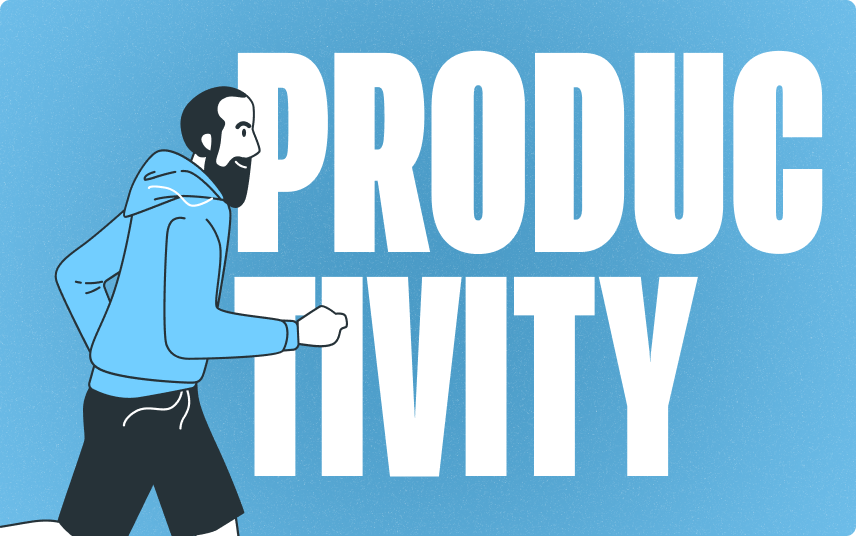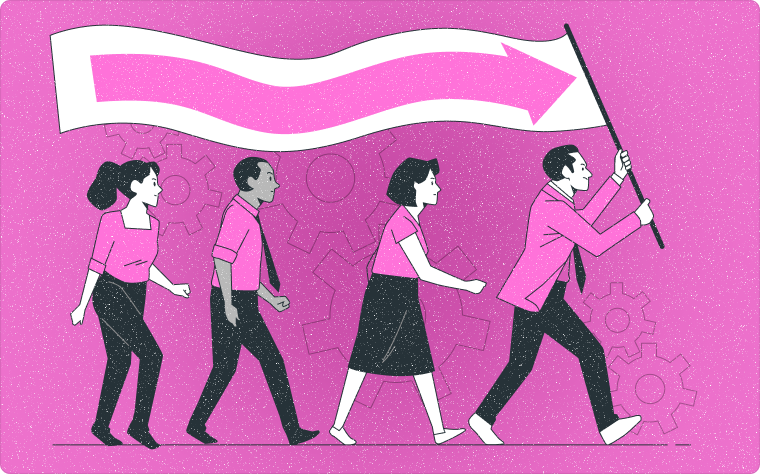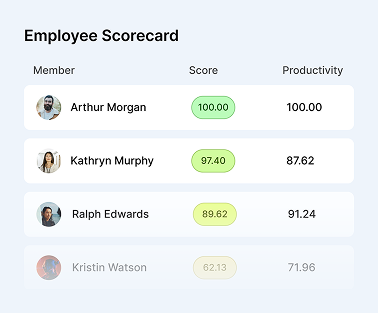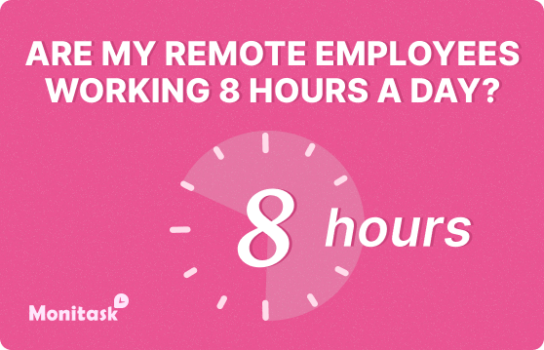Do Higher Wages Increase Productivity?

As employers strive to achieve high employee productivity, one strategy that often comes into play is wage increases.
Wages affect employee productivity in several ways, but the most significant impact may be on worker motivation and satisfaction.
Raising wages will likely make employees happy because they will see an increase in their take-home pay. They will also be more committed to their work because they will feel they are getting paid fairly for their efforts.
Employers use wage increase strategies to improve employee productivity for various reasons, but there are a few drawbacks to using this approach.
So what’s the verdict? Will wages affect employee productivity? The answer might surprise you!

Why do employers want high employee productivity?
Employers want employees who are highly productive and satisfied. But why?
Well, productivity is one of the key factors that businesses value most. It determines the output level and can be improved through various means, such as training and development programs.
In addition, a good working environment and motivating employees are also essential for achieving high productivity levels.
If you’re looking for productivity growth, focus on increasing worker satisfaction. This way, you’ll achieve the desired results more efficiently.
Higher employee productivity leads to cost savings.
Employers need their employees to be productive and save time and money. This is why improved communication and collaboration between employees are so important.
Often, employers can gauge productivity through surveys or performance reviews.
However, there are other means of measuring employee productivity, for example, by measuring the amount of work done in a given period relative to the number of hours worked.
By understanding which methods work best for your business, you will achieve better cost savings and increased productivity among your staff!
Improved organizational performance and agility
By improving organizational performance and agility, companies can save money in recruitment, improve output, reduce costs while still meeting quality standards, and achieve high employee productivity.
In turn, this leads to increased competitiveness in the market as well as improved customer satisfaction.
The Effect of Salary Increases to Employees Motivation and Satisfaction
The decision to raise wages can significantly affect worker motivation and job satisfaction. Salary increases are likely to make employees feel valued and fairly compensated, which can lead to a greater commitment to their roles and responsibilities within the company.
By acknowledging their staff’s hard work and dedication with pay raises, employers can foster a sense of appreciation and loyalty, potentially boosting productivity.
However, while salary increases can contribute to happier employees, there are potential drawbacks to relying solely on this approach.
Organizations need to weigh the effects of salary increases on employees, including the implications for average salary increase budgets and the business’s overall financial health.
Employers should measure the true impact of pay raises on motivation and productivity through surveys or focus groups, and target raises toward areas where they are most needed, such as for top performers or to cover training costs.

Wages and employee motivation
Employee motivation is one of the most important factors determining how fast a company can grow. And one of the factors in employee motivation is wages.
When businesses offer competitive wages, it will help them attract the best employees and keep them around for a long time. However, it’s not just about offering high salaries. Businesses must also provide fair wages commensurate with their employees’ skills and experience.
When workers feel they are paid fairly, they are likelier to put their best effort into their jobs. As a result, the company will have an increase in productivity.
Rewards and recognition play an essential role in motivating employees.
Employees are motivated by different things. Knowing what motivates your employees is essential to keeping them productive and engaged. You need to give them the right incentives to make them happy and satisfied with their work.
If low wages are a problem, giving employees incentives such as bonuses or better working conditions can help improve productivity. Appreciation can also take various forms, such as bonus payments, higher paycheques, and more perks.
However, not every employee responds positively to monetary compensation alone – some prefer recognition in the form of awards, prestigious certificates, or even emotional gestures like hugs or flowers.
Payroll systems that use different types of rewards and recognitions offer an ideal way for companies to motivate their workforce effectively without resorting too much to money alone.
Higher wages often lead to increased employee productivity.
Raising wages is often considered contentious, with many employees believing it will lead to decreased productivity.
However, research consistently shows that higher wages often increase employee motivation and productivity.
To ensure that your wage increase is well-deserved and not just based on seniority or skillset requirements, you should conduct surveys or focus groups on measuring the true impact of wage increases on employee motivation and productivity.
You can also target raises specifically towards those areas where they are needed the most – such as training costs or moving expenses.

Effect of Salary Increase on Employees
As businesses strive to remain competitive, it’s essential to consider the effect of wages on employee productivity.
Theoretically, higher wages could lead to significant business savings because of reduced employee turnover rates and lower training costs.
Higher pay can increase employee motivation and effort, producing better quality work. Ultimately, it’s up to businesses to decide whether wage affects employee productivity positively or negatively.
Theories about wage and productivity
There are several theories about how wage growth affects employee productivity. The most popular theory is the substitution effect, which states that employees will switch to different tasks or do the same job more efficiently as wages increase.
The substitution effect suggests that employees may become more efficient as wages increase or switch to different tasks. The income effect posits that higher total wages could lead workers to seek more leisure time and reduce hours worked.
The second theory is the income effect, which suggests that higher total wages will cause workers to demand more leisure time and reduce hours worked per week.
Evidence from economic experiments
Economic experiments have shown that increasing real wages can positively affect productivity, albeit often by a modest percentage. Over time, however, these increments can culminate in more significant gains.
There is evidence that increasing real wages does have a positive impact on employee productivity. Studies show that when employees are fairly rewarded for their efforts, it increases efficiency and better overall performance in the workplace.
This boost in productivity is usually small – around 3%. However, over time it can lead to larger gains as the wage growth-earner becomes more motivated and focused on their job.
Furthermore, they may be less likely to leave or seek other employment opportunities to meet pay gap levels.
What determines wages?
Wage levels are influenced by various factors such as geographical location, industry, company size, etc.
However, little evidence suggests that higher wages increase organizational productivity or efficiency. An employee’s level of experience and skills usually determines their wage rate.
Productivity vs. Wages
In the modern economy, a clear distinction exists between productivity and wages. Productivity refers to the output per worker, often measured in terms of goods produced or services rendered over a certain period. Wages, on the other hand, are the compensation employees receive for their labor.
While productivity has seen a steady increase over the decades due to technological advancements and improved work practices, wages have not always kept pace. This discrepancy has led to a widening gap that affects both the workforce and the economy at large.
The relationship between productivity and wages is crucial, as it reflects the value placed on an employee’s work and the share of economic growth that is returned to workers.
Here is a simplified representation of the trend over the past few decades:
| Year | Productivity Growth (%) | Wage Growth (%) |
|---|---|---|
| 1990 | 2.5 | 1.8 |
| 2000 | 3.0 | 2.1 |
| 2010 | 1.5 | 0.5 |
| 2020 | 2.0 | 1.2 |
The table above illustrates the disparity between the growth in productivity and the much slower rate of wage increases, highlighting the need for a closer examination of the factors contributing to this gap.
What is the Productivity-Pay Gap?
The Productivity-Pay Gap refers to the widening divergence between the earnings of workers and their productivity. Productivity, in economic terms, is the measure of output per hour worked. Historically, wages and productivity grew hand-in-hand, but since the 1970s, this trend has shifted dramatically. Workers are producing more than ever before, yet their compensation has not kept pace with these gains.
Productivity growth and wage growth were once synonymous, leading to a shared prosperity. However, the gap began to expand due to various factors, including technological advancements, globalization, and changes in labor market dynamics. This disconnect poses significant implications for economic equality and living standards.
The stagnation of wages despite rising productivity suggests that the benefits of increased efficiency are not being equitably distributed across the workforce.
To illustrate the disparity, consider the following table showing the percentage increase in productivity and wages over the past decades:
| Year | Productivity Increase (%) | Wage Increase (%) |
|---|---|---|
| 1980 | 10 | 5 |
| 1990 | 20 | 9 |
| 2000 | 30 | 12 |
| 2010 | 40 | 15 |
| 2020 | 50 | 18 |
The table clearly demonstrates that while productivity has seen a consistent upward trajectory, wages have lagged behind, leading to a growing productivity-pay gap. Addressing this issue is crucial for ensuring that the fruits of labor are fairly shared among those who contribute to economic growth.
When do employers use wages as a strategy to boost productivity growth?
It’s challenging to know when and how to raise your salary. After all, you want to be fair and reasonable while still meeting your employer’s needs.
Here are four common scenarios in which employers use salary as a strategy to improve employee productivity:
Do the research and determine what salary would be fair and reasonable for your position, considering the company’s history, size, and other factors.
Employers must understand their specific goals and the market to make informed decisions regarding salary adjustments and employee compensation plans.
The Disconnect Between Productivity and Wages: Insights from the Economic Policy Institute
The Economic Policy Institute has highlighted a growing disconnect between productivity and wages in the United States, with productivity outpacing wage growth significantly from 1979 to 2020.
This divergence has contributed to income inequality, as the benefits of increased productivity have primarily gone to shareholders and executives rather than average workers.

Labor Productivity and Economic Growth
Labor productivity is a pivotal driver of economic growth, with increases in productivity leading to higher living standards. Historically, hourly workers’ compensation grew in tandem with productivity, allowing workers to share in the gains.
However, recent trends show hourly wages stagnating despite rising productivity, leading to growing inequality. Boosting hourly compensation growth is essential to ensure that the benefits of increased productivity are more equitably distributed.
Wage Pressure and Its Influence on Productivity
Wage pressure arises from the demand for employees, competition among companies, and prevailing wage levels.
It can result from a skills shortage and often leads to higher wages.
The effect of wage pressure on employee productivity can be varied, with potential outcomes including reduced stress and job satisfaction or increased absenteeism and conflict if employees feel they are not being paid fairly.
Dealing with wage pressure requires a thoughtful approach. Companies may offer better benefits, consider hiring new employees, or have workers sign agreements that outline the implications of salary increases on their roles.
It’s important to understand how wage pressure affects productivity and to take steps to mitigate its impact while fostering a positive work environment.
Wage Pressure in productivity vs. wages
Wage pressure is a term that describes the amount of demand for employees in a given industry, the degree of competition amongst companies for employees, and how much those employees are currently earning.
Wage pressure is often associated with a skills shortage in the marketplace, resulting in a noticeable uptick in the money companies are paying their employees.
Why Does Wage Pressure Matter in Employee Productivity?
Depending on the industry, an increase in wages can have an overwhelmingly positive or negative impact on employee productivity.
To determine whether the former or latter will be the case for your staff, you should first understand why wage pressure matters in employee productivity in the first place.
The general expectation is that when your employees receive a pay increase, they are more likely to relax and enjoy their workdays than they would otherwise.
When employers do not pay their employees fairly, they may not put in their best effort at work. The specific impacts vary depending on the type of industry you operate in.
When a business uses the same salary structure and pay raises year after year without considering what employees contribute, productivity will likely decline.
However, productivity increases when a business considers the quality and quantity of work employees contribute and adjusts salary accordingly.
The Impact of Raising the Minimum Wage on Other Wages
The debate surrounding the minimum wage often focuses on its direct effects on low-income workers, but increasing the minimum wage can also have significant ripple effects across the wage structure, influencing earnings for a broader range of employees.
Direct Effects on Minimum Wage Earners
Raising the minimum wage directly benefits those earning the least, providing them with higher pay that can improve their quality of life. However, this increase may prompt employers to adjust their workforce, either by reducing hours or even cutting jobs, to manage the higher costs. Some businesses might pass these costs onto consumers through price increases, potentially contributing to inflation.
Spillover Effects on Near-Minimum Wage Earners
When the minimum wage rises, workers earning slightly above the minimum wage might also receive pay raises. Employers often adjust these wages to maintain a pay hierarchy that reflects experience and skill differences. This adjustment is particularly common in industries like retail or food service, where wages tend to cluster around the minimum.
However, the extent of these spillover effects varies. In sectors where wages are generally higher, the impact of a minimum wage increase may be less pronounced.
Wage Compression
One consequence of raising the minimum wage is wage compression, where the gap between lower and higher wages narrows. For example, if entry-level wages increase significantly, mid-level positions may not see corresponding raises, leading to a smaller wage difference between less and more experienced workers. This can result in dissatisfaction among skilled workers who may feel their pay doesn’t adequately reflect their qualifications.
To address wage compression, employers might need to re-evaluate their compensation structures, but such adjustments can be costly and challenging, particularly for small businesses.
Impact on Wage Bargaining and Unions
Minimum wage increases can also affect wage bargaining dynamics, especially in unionized workplaces. Unions may use these increases to negotiate higher wages for more experienced workers, leading to wage adjustments across different tiers of the workforce.
In non-unionized sectors, where wage bargaining is less standardized, the impact can vary widely. Some employers may raise wages selectively, which could create disparities and tensions among employees.
Broader Economic Effects
Raising the minimum wage can influence overall economic conditions. It can lead to increased consumer spending, as low-wage workers are likely to spend their additional income. This boost in demand can help businesses, potentially leading to more hiring and wage increases across the economy.
However, if businesses respond to higher labor costs by raising prices, inflation could erode the purchasing power of workers, particularly if wage increases don’t keep pace with rising costs. This situation could negate some of the benefits of a higher minimum wage, especially for those higher up the wage scale who don’t receive corresponding raises.
Additionally, the impact of a minimum wage increase can vary by region. In areas with a high cost of living, the raise might not cover basic expenses, leading to demands for further wage increases. In contrast, in lower-cost areas, the same wage increase could significantly improve living standards, potentially influencing migration as workers seek better opportunities.
3 Strategies to Deal with Wage Pressure in Employee Productivity
You can deal with wage pressure in employee productivity in a few different ways.

Ways to Overcome the Effects of Wage Pressure on Employee Productivity
Employers should see the effects of wage pressure on employee productivity as an opportunity to improve their business.
Here are five ways for employers to overcome the effects of wage pressure on employee productivity:
1. Invest in employee training
Employees who learn something new are more likely to feel more productive and thus more motivated. Investing in employee training and development can do a lot to help mitigate the effects of wage pressure and encourage employee productivity.
2. Change the performance evaluation process.
When employees are evaluated fairly and are rewarded according to their productivity, they are more motivated to do their best work. To ensure that your employees’ quality of work is considered, you must have a performance evaluation process.
3. Set realistic expectations for employees
When managers set realistic expectations for their employees, they are less likely to feel frustrated with the workload and more likely to feel productive.
4. Be flexible with employees.
Flexibility with employees can help you avoid some significant issues that wage pressure can cause, such as absenteeism and major turnover.
5. Provide additional training for supervisors and managers
Being a supervisor or manager can give you much extra power in the workplace. Managers can use this power to help their employees be productive.
The Quest for High Employee Productivity: Why It Matters to Employers
Employers are keen on nurturing highly productive and satisfied employees for several reasons. Productivity directly impacts a company’s output and can be influenced by various factors:
- Training and development programs
- A supportive work environment
- Effective employee motivation strategies.
Enhancing worker satisfaction can lead to more efficient attainment of desired productivity levels.
Moreover, higher productivity can lead to significant cost savings for employers. By promoting improved communication and collaboration among employees, companies can reduce the time and money spent on repetitive or ineffective tasks.
Performance reviews and surveys are common tools for measuring productivity. Still, it’s also possible to assess it by comparing the amount of work completed relative to the number of hours worked.

Organizational Performance and Agility
Enhanced organizational performance and agility can result in cost savings associated with recruitment, improved output, and reduced expenses while maintaining quality standards.
This, in turn, contributes to a company’s competitiveness in the market and improved customer satisfaction.
Wages and Employee Motivation
Motivation is critical in determining the pace at which a company can grow. Competitive wages help businesses attract and retain the best existing employees, but it’s not just about offering high salaries.
Companies must also ensure that pay is commensurate with the employee’s skills and experience. When workers feel they are paid fairly, they are more likely to put forth their best effort, increasing productivity.
Rewards and Recognition
Knowing what motivates employees is essential for maintaining productivity and engagement.
Incentives such as bonuses, better working conditions, and various forms of employees appreciation — including bonus payments, higher paychecks, perks, awards, and emotional gestures — can all boost motivation.
Not every employee is driven by monetary compensation; recognition of their efforts is equally important for some.
Payroll systems that offer diverse rewards and recognitions.
Conclusion: What Really Motivates Employees
Why do some people feel more satisfied with their work than others? And what can employers do to increase worker productivity and retention?
One answer is that employees who are paid fairly are more likely to be motivated to do their best work. As a result, productivity growth is expected to increase. You can also target raises specifically towards those areas where they are most needed – such as training costs or moving expenses.
In addition, employers should take steps to improve the working environment. The working environment includes fostering cooperation and collaboration between employees and providing healthy snacks and opportunities for exercise.
Ultimately, while a pay raise can contribute to job satisfaction, it is not the sole determinant of employee happiness. Employers must consider various factors, including ensuring that employees feel paid fairly, the working environment, and opportunities for professional growth.
– The Monitask Team
FAQ: Productivity and Wages
What is the Productivity-Pay Gap?
The Productivity-Pay Gap is the disparity between the increase in productivity levels and the corresponding increase in wages over a period of time. It highlights the imbalance between worker productivity and compensation.
How does a salary increase impact employee performance?
A salary increase can positively impact employee performance by boosting motivation, job satisfaction, and commitment. It can lead to increased productivity, higher quality work, and reduced turnover rates.
Why is closing the Productivity-Pay Gap important?
Closing the Productivity-Pay Gap is essential for ensuring fair compensation for employees based on their contributions. It promotes employee morale, engagement, and overall organizational success.
What are the challenges in bridging the Productivity-Pay Gap?
Challenges in bridging the gap include balancing budget constraints, managing employee expectations, and addressing potential resistance from stakeholders. It requires strategic planning and effective communication.
How can organizations effectively address the Productivity-Pay Gap?
Organizations can address the gap by conducting regular performance evaluations, implementing transparent salary structures, offering competitive benefits, and fostering a culture of recognition and reward.



